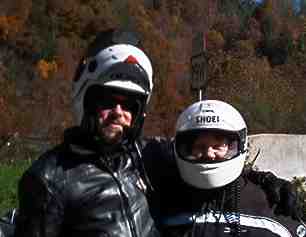I was up late Tuesday night, and caught an Internet headline about 12 miners being found. I immediately switched away from Letterman and headed to CNN. Multi-tasking, I flipped between the three big cable news channels and all their websites. Everyone seemed to be saying the same thing--that after having no hope (bad news from air sampling), then deeper despair with some acceptance of the gravity of their situation (when the first miner was discovered near the rail car), they were now rejoicing after having been given a miracle in the survival of 12 of the 13.
I watched for about an hour, and noticed a couple things that concerned me, but I didn't want to dwell on inconsistencies. I kept waiting for the cut-away from the well-lighted reporters to the shot of officials in front of a bank of microphones, the flood lights at the mine entrance, the flashing lights on vehicles shown through long lenses, anything grainy. None of that appeared. We've been programmed to look for it--I recall watching the vehicles, lights, officials ,and machinery as Baby Jessica was rescued from the well, and every rescue I've watched since then has had the same elements.
Still, even with the missing elements, I found I was still surprised when I heard "the truth" in the morning.
As I saw and heard about the families' reactions, I was struck with how similar their compressed experiences were to the experiences of so many families during a loved one's terminal illness.
When my Dad was first diagnosed with cancer, we each experienced the concussive blow (explosion) of shock as we were made to face his mortality. The possibility had always been there--just like the miner who reminded his wife each day of his devotion in case he didn't come home. We had just never had to use words about weeks, months or even hours before.
As soon as he explosion happened, men and equipment were pressed into service. Things MUST BE DONE. My Dad began 24/7 chemo, several weeks of radiation and surgery (1st cancer in 2002), then surgery, followed by radiation (2nd cancer of 2002.) We wanted to believe that all these resources would change the outcome--they did delay it, and we are grateful. Families saw equipment moving, and holes being drilled--maybe there would be air--maybe there was still hope.
Note: There's nothing wrong with hope, and I prayed like the rest of America for a miracle. I've just be struck by the similarities.
After some period of getting used to thinking that things will improve, or that things will at least not get worse, there's often some shock. For us, it was the morning when, after gradual weakening to which we'd become accustomed, Dad had a grand mal seizure. Things were truly grave, and we knew that he would soon leave us. For the WVa families, I think that reality hit with the confirmation of the first death. They gathered together, sobbed and tried to console each other, expecting to soon hear the worst.
Over the years since I first worked on an oncology floor, I've seen the phenomenon of "the miracle." Sometime just shortly before an individual dies, there is a stirring, an improvement, a delay in the inevitable. I once saw a bedridden man get up, dress himself (put coat on over his hospital gown) and shuffle towards the hospital exit--pushing his IV pole. My Dad became just a bit more talkative, made a few jokes, and was able to give a bit of himself to each of us as we sat with him in the week before he died. The families in the Baptist church got a gift of a few hours of "they-aren't-dead" time, time they hadn't expected to have and time that hurt so much when it ended.
Their anger was raw; mine came later when I would consider time we hadn't had with Dad, time Dad and Mom hadn't had together. Time slowly lessens the intensity of the pain, and I pray that the miners' families will also experience the comfort of God--away from the spotlight.





No comments:
Post a Comment